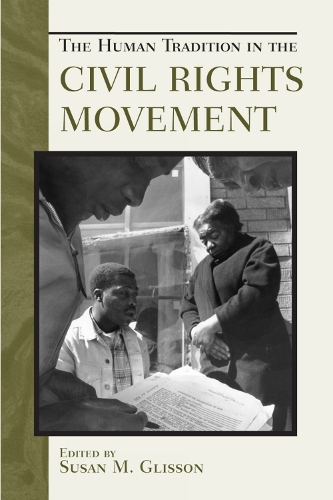
The Human Tradition in the Civil Rights Movement
(Paperback)
Publishing Details
The Human Tradition in the Civil Rights Movement
By (Author) Susan M. Glisson
Contributions by Crystal Anderson
Contributions by Eric Arnesen
Contributions by Paul R. Beezley
Contributions by David Cecelski
Contributions by Constance Curry
Contributions by Jay Driskell
Contributions by Minoa Uffleman-Evans
Contributions by Carol Giardina
Contributions by David Libby
Bloomsbury Publishing PLC
Rowman & Littlefield Publishers
11th September 2006
United States
Classifications
General
Non Fiction
323.092273
Physical Properties
Paperback
320
Width 154mm, Height 233mm, Spine 27mm
553g
Description
The American civil rights movement represents one of the most remarkable social revolutions in all of world history. While no one would discount the significance of the leadership of Martin Luther King and others, we should also recognize that the fight could not have been waged without the countless foot soldiers in the trenches.
As an important corrective to the traditional "great man" studies, these essays emphasize the importance of grassroots actions and individual agency in the effort to bring about national civil renewal. These biographies assert the importance of individuals on the local level working towards civil rights and the influence that this primarily African-American movement had on others including La Raza, the Native American Movement, feminism, and gay rights.
Through engaging biographies of such varied individuals as Abraham Galloway, Ida B. Wells, James K. Vardaman, Jose Angel Gutierrez, and Sylvia Rivera, Glisson widens the scope of most Civil Rights studies beyond the 19541965 time frame to include its full history since the Civil War. By widening the time frame studied, these essays underscore the difficult, often unrewarded and generational nature of social change.
Reviews
Glisson's volume convincingly argues that the civil rights movement was not always top-down and that local grassroots organizers deserve recognition from scholars and the general public alike. * The Journal Of Mississippi History *
Susan Glisson has assembled a stellar cast of scholars to tell the stories of individual Americans engaged in the struggle for human rights. This remarkable collection of essays is at once inspiring and sobering. It demonstrates that ordinary people can accomplish extraordinary things. But it also reminds us of the distance still to be traveled before this country lives up to its democratic promise. -- John Dittmer, DePauw University
Author Bio
Susan M. Glisson is director of the Institute for Racial Reconciliation and assistant professor of southern studies at the University of Mississippi.
